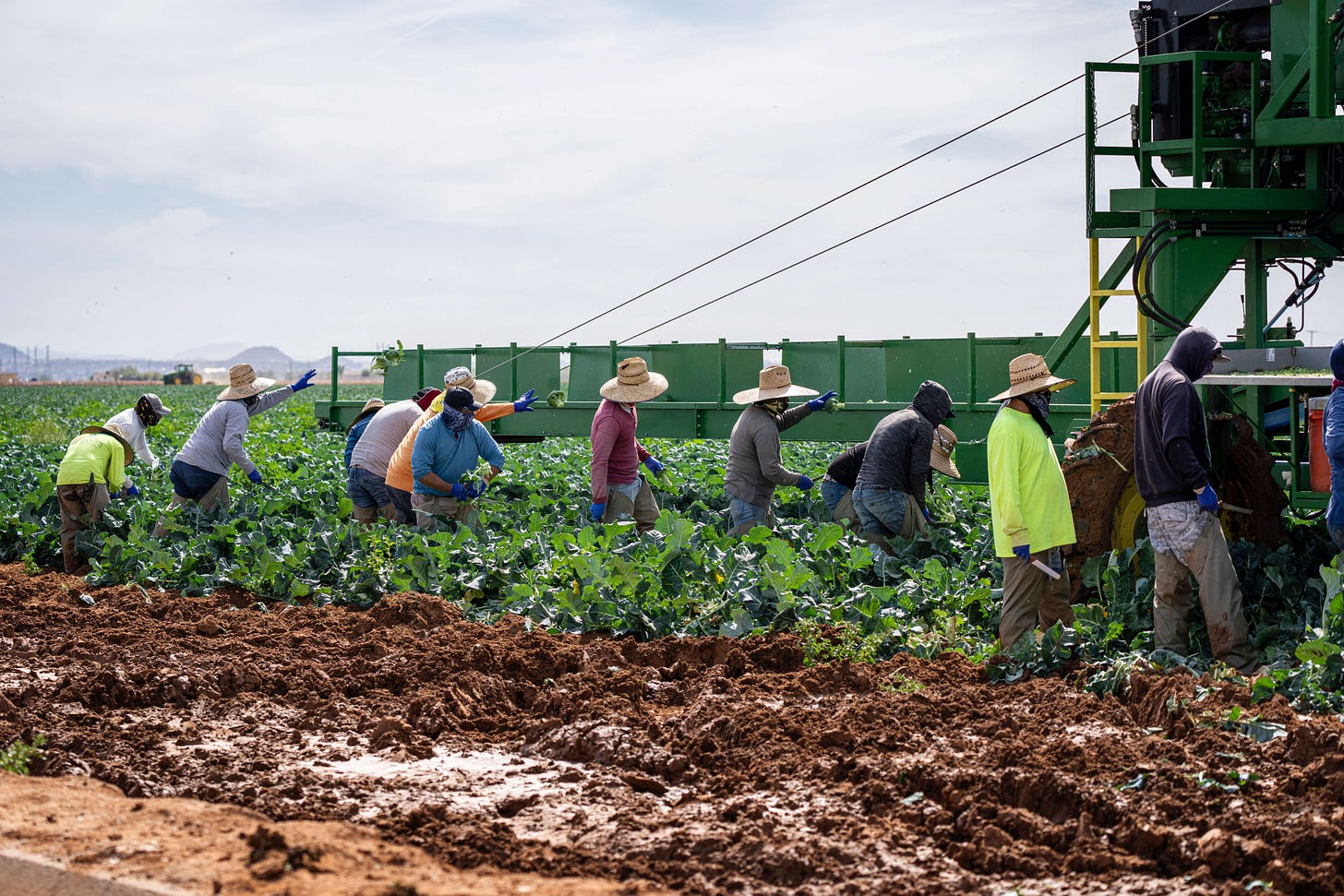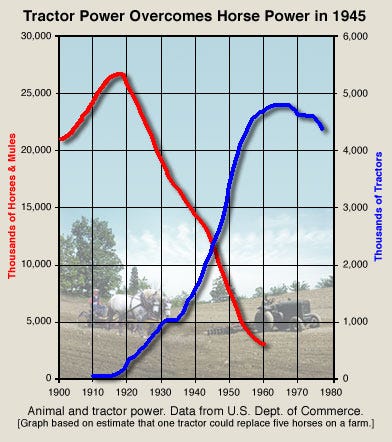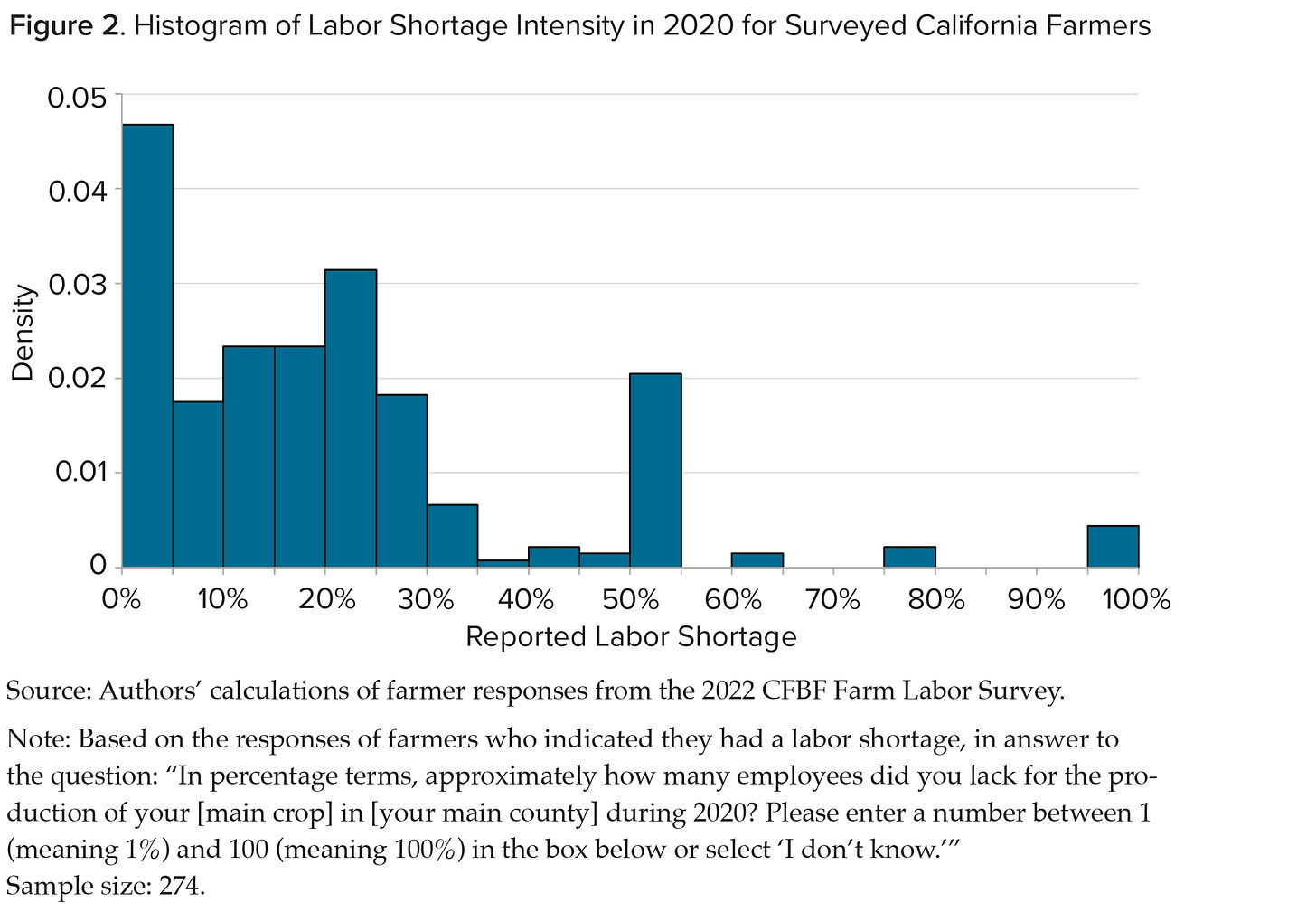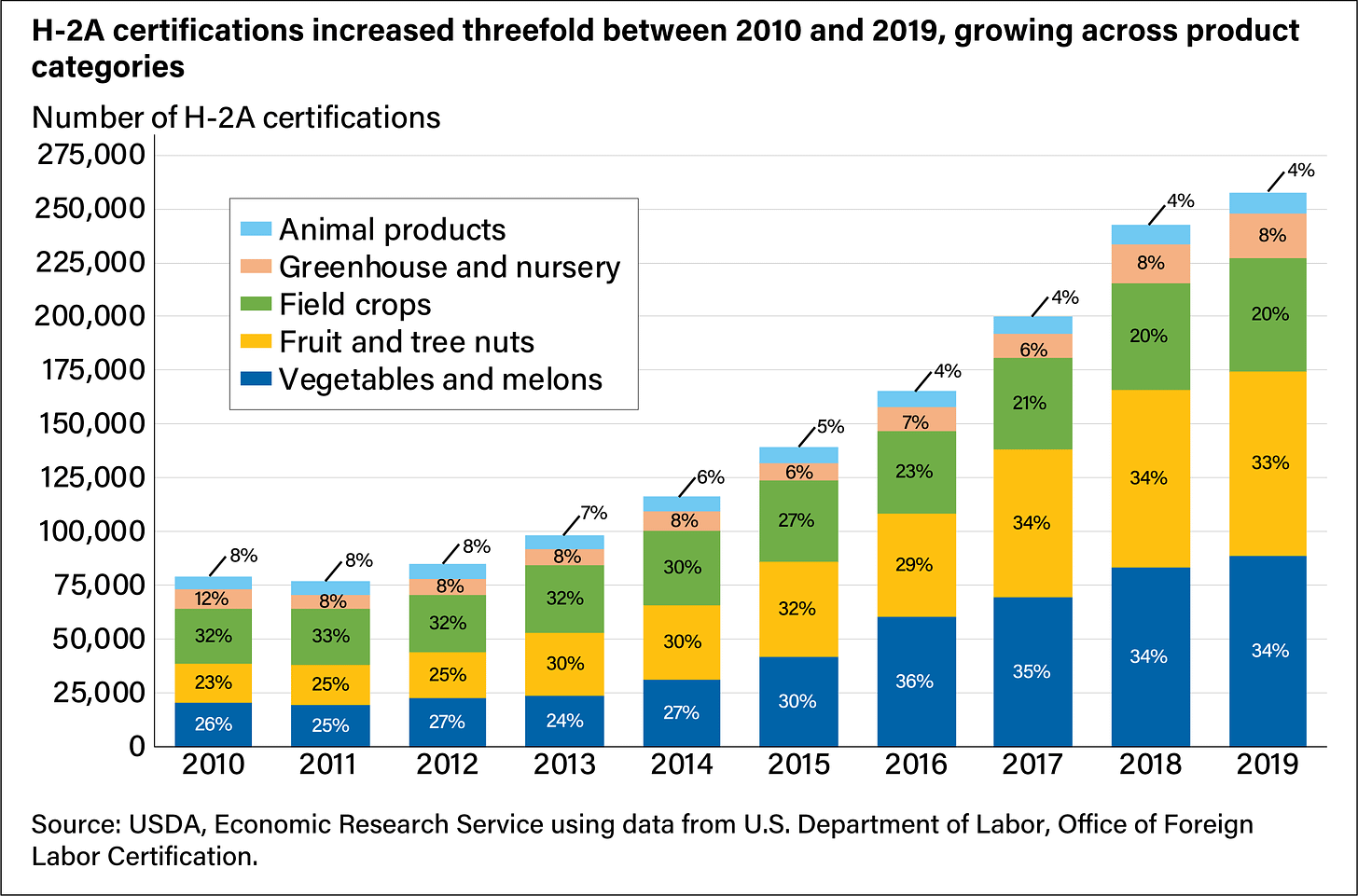
Discover more from Ag Data News
Are Robots Going to Steal our Jobs?
The new wave of agricultural technology will enable machines to take over tasks that people used to do. Robots that weed fields and harvest crops will replace people who could have done the task. This fact causes people to worry a lot about job loss.
When horses lost their jobs to tractors, the horse population dropped by 85%. What will happen when robots take over agricultural jobs?
This is a good question and one we should take seriously, but it must be answered in light of two facts.
Fact 1: There will be plenty of jobs
Noah Smith recently addressed the effects of automation on jobs on his Noahpinion website. He wrote:
If AI causes mass unemployment among the general populace, it will be the first time in history that any technology has ever done that. --- from "Generative AI: autocomplete for everything" by Noah Smith and roon
When machines take over some tasks, people find other things to do. This cycle has repeated itself numerous times in the last few centuries. I see little reason to believe it will be different this time. Unlike draft horses, people are adaptable.
Noah distills the point in this tweet.
So the relevant question is not whether we will have mass unemployment, but what will happen to the specific workers who are replaced. How easily can they find new jobs? And what of their communities?
Fact 2: Farmers can't find workers
Most people don't like doing agricultural labor. It's hard work and often bad for your health. For this reason, and due to increasing employment opportunities elsewhere in the economy, fewer workers are available for farmers to hire. They are choosing jobs in other sectors.
In a recent article for ARE Update, UCD alum Zach Rutledge and my colleague Pierre Mérel found that 45% of surveyed California farmers reported problems hiring enough employees during 2020. These results echo a previous survey published in a 2019 issue of ARE Update, so they can't be blamed on COVID.
Labor scarcity is a multi-billion dollar challenge for California agriculture.
One way to meet the labor challenge is through the H-2A Temporary Agricultural Workers Program, which allows farmers to bring in foreign workers on short term contracts.
In a blog this week, Walt Duflock of the Western Growers Association notes that farmers have used H2-A to mitigate labor shortages, but the program requires navigating a complex bureaucracy and adds substantial cost. Employers have to pay for housing for H2-A workers, which often requires navigating politically complex permitting processes in addition to the cost of the housing itself.
So, rather than robots stealing all the jobs, we have robots stepping in to fill a gap left by the missing agricultural labor force.
What will happen when robots take over agricultural jobs?
In my role as leader for ethics and socioeconomics at the AI Institute for Next Generation Food Systems, I think about this question a lot. AI has the potential to increase agricultural productivity, reduce food prices, and reduce the environmental footprint of agriculture. But not everyone will win.
The losses will depend in part on how quickly the technological transition happens. Robots are filling a gap left by missing labor, so a slow transition would mean few job losses. However, a fast transition could mean significant job losses.
We need to devote resources to understanding how the rise of the robots will affect people currently working in agriculture and their communities. With understanding can come policy solutions to help those squeezed out in the transition.
In the first part of this century, a rapid influx of cheap imports from China undercut US manufacturers, putting millions of Americans out of work. David Autor and co-authors found that many communities were hit hard by this so-called China shock and have yet to recover.
Let's try to avoid a similar outcome in agriculture.









